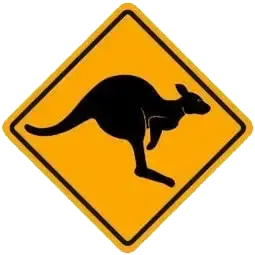
There is a stereotype in the rest of the world that, in Australia, everything there is out to kill you.
This is just flat wrong. Pretty much every wild animal in Australia will do its best to avoid confrontation with humans.
It isn’t even true that the most deadly animals in the world are in Australia. As you might expect, that goes to animals which sometimes seek and attack other animals like humans: wolves, hippopotamus, bear, mosquito, etc. Nothing special about Australia there.
It’s probably a mis-understanding of the truth: That Australia is home to animals with the most deadly venom in the world. Arachnids and reptiles, sea creatures, etc. with highly toxic venom.
This is a very different statement. Most of those animals with deadly venom, are not “out to kill you”. They are deadly but don’t tend to seek humans; they have deadly defenses that they will employ if they feel trapped or ambushed.
Some of these animals do seek shelter, which in remote areas often brings them into human habitation. In rural areas you do need to check you’re not going to surprise a bitey animal when going to the toilet or other nice sheltered spaces.
So, no the Australian wildlife is not “out to kill you”; quite the contrary, if you move carefully it will do its best to steer clear of you, it has no interest in getting near you and your big mammalian ways.






No. That is one question they ask. It is not how they define intimate partner violence.
The definition they use is right there in the report:
So if the behaviour does not (my emphasis) “cause physical, sexual or psychological harm”, it does not match their definition of intimate partner violence.